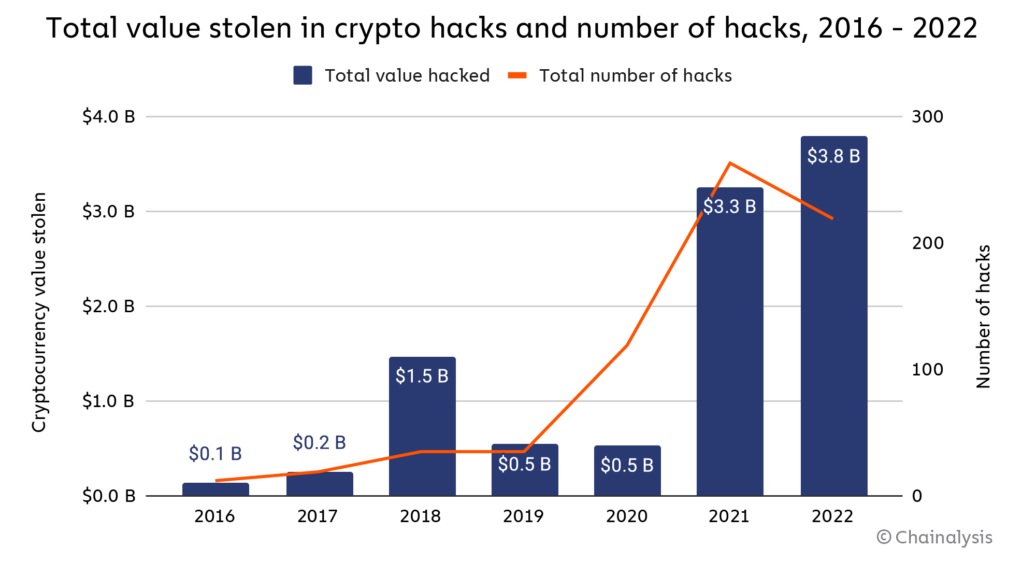Hackers Stole $3.8 Billion From Crypto Firms in 2022, Says Chainalysis – Featured
Blockchain analytics firm Chainalysis says 2022 was “the biggest year for crypto hacking,” with $3.8 billion stolen from cryptocurrency companies. The company added that decentralized finance (defi) protocol hacks accounted for 82.1% of all cryptocurrencies stolen by hackers during the year. Crypto Hacking Reached a Record High in 2022 Blockchain analytics firm Chainalysis released a section of its upcoming 2023 Crypto Crime Report on Wednesday that said: 2022 was the biggest year for crypto hacking yet, with $3.8 billion stolen from cryptocurrency companies. The firm stated that crypto hacking activity increased significantly in March and peaked in October...

Hackers Stole $3.8 Billion From Crypto Firms in 2022, Says Chainalysis – Featured

Blockchain analytics firm Chainalysis says 2022 was “the biggest year for crypto hacking,” with $3.8 billion stolen from cryptocurrency companies. The company added that decentralized finance (defi) protocol hacks accounted for 82.1% of all cryptocurrencies stolen by hackers during the year.
Crypto hacking hit a record high in 2022
Blockchain analytics firm Chainalysis released a section of its upcoming 2023 Crypto Crime Report on Wednesday saying:
2022 was the biggest year yet for crypto hacking, with $3.8 billion stolen from cryptocurrency companies.
The firm explained that crypto hacking activity increased significantly in March and peaked in October - the month that "became the largest single month ever for cryptocurrency hacking, as $775.7 million was stolen in 32 separate attacks," Chainalysis described.

The firm added that “82.1% of all cryptocurrencies stolen by hackers – a total of $3.1 billion” came from decentralized finance (Defi) hacks. Noting that this percentage increased from 73.3% in 2021, the company noted that $3.1 billion of 64% came specifically from cross-chain bridge protocols.
Chainalysis also stated that “hackers linked to North Korea… have been by far the most prolific cryptocurrency hackers in recent years,” stating:
In 2022, they broke their own theft records, stealing an estimated $1.7 billion worth of cryptocurrencies in multiple hacks that we attribute to them.
Additionally, the blockchain analytics firm said North Korea-linked hackers stole $1.1 billion of that amount from Defi protocols, making North Korea “one of the driving forces behind the Defi hacking trend that intensified in 2022.” In addition to Defi protocols, Chainalysis found that “North Korea-linked hackers also tend to send large sums to mixers, which have typically been the cornerstone of their money laundering process.”
The firm continued that “for much of 2021 and 2022, North Korea-linked hackers almost exclusively used Tornado Cash to launder stolen cryptocurrency in hacks.” Ethereum mixer Tornado Cash was sanctioned by the US government in August last year.
What do you think about hackers stealing $3.8 billion from cryptocurrency firms last year? Let us know in the comments section below.
Photo credit: Shutterstock, Pixabay, WikiCommons

 Suche
Suche
 Mein Konto
Mein Konto
